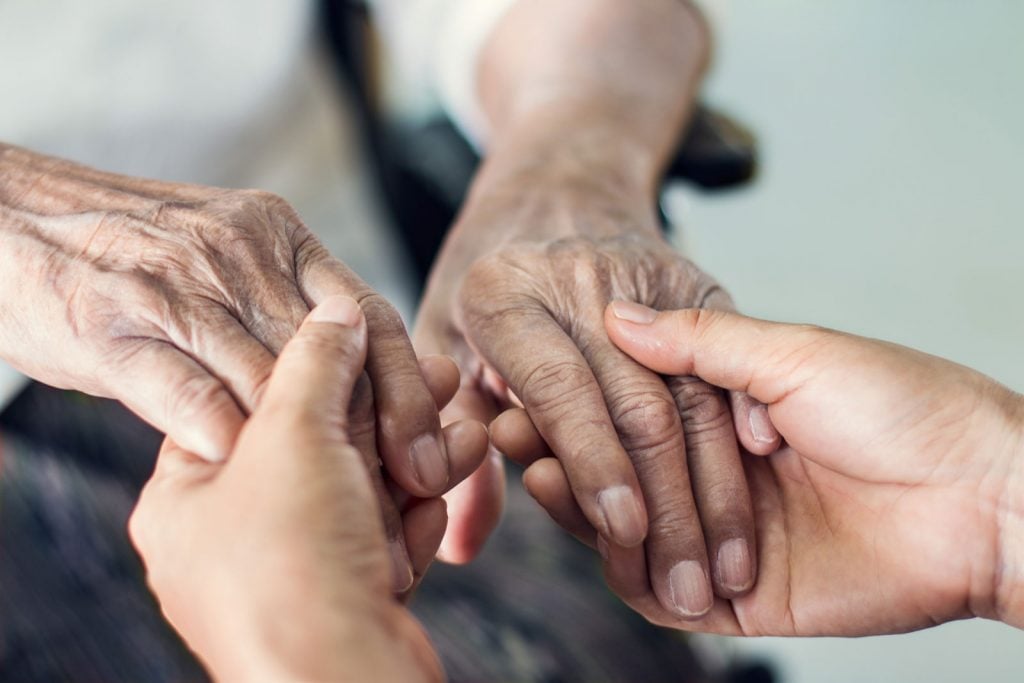Written By: Nick Todorovic and Aidan Vining, Student-at-Law
One of the fundamental principles of Canadian tort law is that an injured person is entitled to receive compensation that puts them in the position they would not have been in had they not been injured through the negligence of another person. This includes compensation for past and future care. This means that if you have been injured and require ongoing care from a personal support worker, nurse, therapist, or other medical professionals, the defendant that negligently caused your injuries has to compensate you for the costs of those future services.
In cases involving severe injuries, a person may require 24-hour attendant care for the rest of their life. That amount of care, while necessary, can come with a significant price tag. Due to the size of these damage awards, insurance companies will do their best to not have to pay for an injured person’s future care.
One argument that insurance companies like to make is that an injured person does not need to be compensated for attendant care because they are receiving all or some of their assistance from family members on a voluntary basis. For example, a person that requires 24-hour attendant care may receive that care for 8 hours a day from their husband, wife, parents, or children. The insurance company would argue that they should not have to pay for those 8 hours of care because the injured person is not paying a professional to provide that care.
The case law does not support this argument made by insurance companies. Below are just a few of the cases where the Courts have said that a person’s future care needs must be assessed in a vacuum and in the absence of consideration of benevolent family support.
Andrews v Grand & Toy Alberta Ltd., [1978] 2 S.C.R. 229 [here]
In Andrews, one of the seminal cases in Canadian tort law, the Supreme Court of Canada stated:
The evidence showed that the mother of the appellant James Andrews was living alone, in a second-floor apartment and that relations between Andrews and his mother were strained at times. This should have no bearing in minimizing Andrews’ damages. Even if his mother had been able to look after Andrews in her own home, there is now ample authority for saying that dedicated wives or mothers who choose to devote their lives to looking after infirm husbands or sons are not expected to do so on a gratuitous basis. The second observation is irrelevant.
As can be seen, the Courts have long held that a negligent defendant cannot take advantage of the generosity of family members. It would be unfair to expect family members to provide attendant care on a voluntary basis, just because they love the injured person and want to provide the care themselves. The defendant is required to compensate those family members for the care they are providing due to their negligent actions.
Moore v Wienecke, 2008 ONCA 162 [here]
In Moore, the plaintiff had been receiving gratis assistance from family members since their motor vehicle collision. This assistance provided by the family was likely to continue. The defendant argued that the plaintiff was not entitled to damages for future care since the family members were providing the care, and not paid professionals. The Court of Appeal disagreed and stated:
[36] Moreover, the fact that the respondent’s family has helped him with the tasks of daily living in the past, and may well continue to do so, is irrelevant. As expressed by Dickson J. in Andrews v Grand & Toy Alberta Ltd., [1978] 2 SCR 229, [1978] SCJ No 6, at p 243 SCR, “there is now ample authority for saying that dedicated wives or mothers who choose to devote their lives to looking after infirm husbands or sons are not expected to do so on a gratuitous basis”.
As a result, the Court of Appeal upheld the trial judge’s award of $2,000 per year until the plaintiff reached the age of 75 for future care and maintenance.
Pelletier v Ontario, 2013 ONSC 6898 [here]
The Courts have not limited their position on gratuitous attendant care to only family members. In Pelletier, the plaintiff was injured in a cycling collision when he was struck by a police cruiser. A friend/mentor volunteered to help the plaintiff and brought the injured plaintiff into their home and provided him with care while he recovered. At trial, the plaintiff sought damages to compensate the family for the voluntary care services they provided. The Court agreed with the plaintiff’s claim for damages and stated:
[416] …It matters not from what source [the plaintiff’s] attendant care needs have been met, or who has provided the attendant care. It matters not whether [the plaintiff] is under a legal or moral liability to repay. [The plaintiff’s] loss is the existence of the need for attendant care, the value of which, for the purpose of calculating his damages, is the proper and reasonable cost of providing the attendant care.
As a result, the plaintiff was awarded $1,000 for every month the plaintiff lived with the family and received their care.
Hummel v Jantzi, 2019 ONSC 3571 [here]
In Hummel, the plaintiff was a passenger involved in a motor vehicle collision. Due to his serious personal injuries, the plaintiff required 24-hour-a-day attendant care. At the time of trial, that care had been primarily provided by the plaintiff’s wife and parents. Both parties agreed that the plaintiff required care for the rest of his life. The parties disagreed, however, on the amount the plaintiff should receive given the fact that it was his wife and parents that were providing the bulk of the care. The Court did not accept the insurance company’s argument that they should not have to pay for his attendant care and stated:
[241] In my view, the proper approach to assessing [the plaintiff’s] damages under the heading of the cost of future care is to determine a reasonable amount that is required to provide the care recommended by the various healthcare professionals. Based on the evidence, the damage amount awarded for future care should then be adjusted for contingencies to take into consideration factors such as whether the care will be provided by a professional service provider or a family member or not at all.
[269] I am mindful that, at the present time, [the plaintiff’s] attendant care is provided partly by his wife and partly by his parents. That will not always be the case at least as far as [his parents] are concerned. I am confident that as they age they will be less likely to be able to provide the level of care they are currently providing. They are also likely to predecease [the plaintiff]. Similarly, [his wife] may not always be able or willing to provide the level of care as at present. The needs of the growing family may mean she will have less time to care for [the plaintiff]. She might become unable for physical or emotional reasons to continue to provide care at the current level.
The Court then awarded the plaintiff $200,000 per year for the rest of his life for future attendant care. In coming to this amount, the Court made deductions for the periods of time that the plaintiff would receive care from other healthcare professionals, and a 20% deduction to take into consideration that the medically required attendant care was not likely to be exclusively provided by professional healthcare workers.
Why This Matters
These cases demonstrate just one of the arguments insurance companies will make in an attempt to lower the amount they have to pay to an injured plaintiff. If you or a loved one have been injured through the negligence of someone else, it is important to speak with an experienced personal injury lawyer to ensure you receive the full compensation you are entitled to. Contact our office for a free consultation to discuss your next steps with one of our personal injury lawyers.






